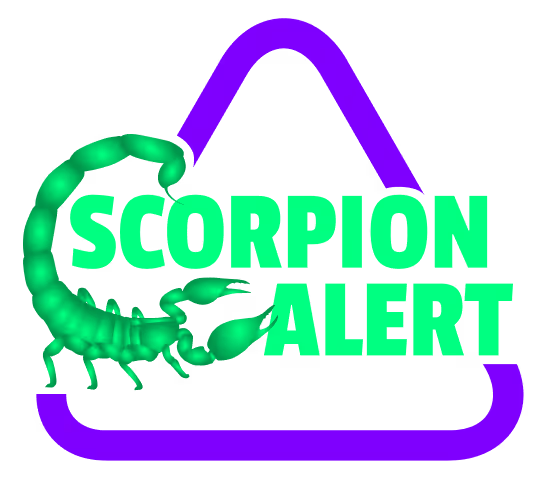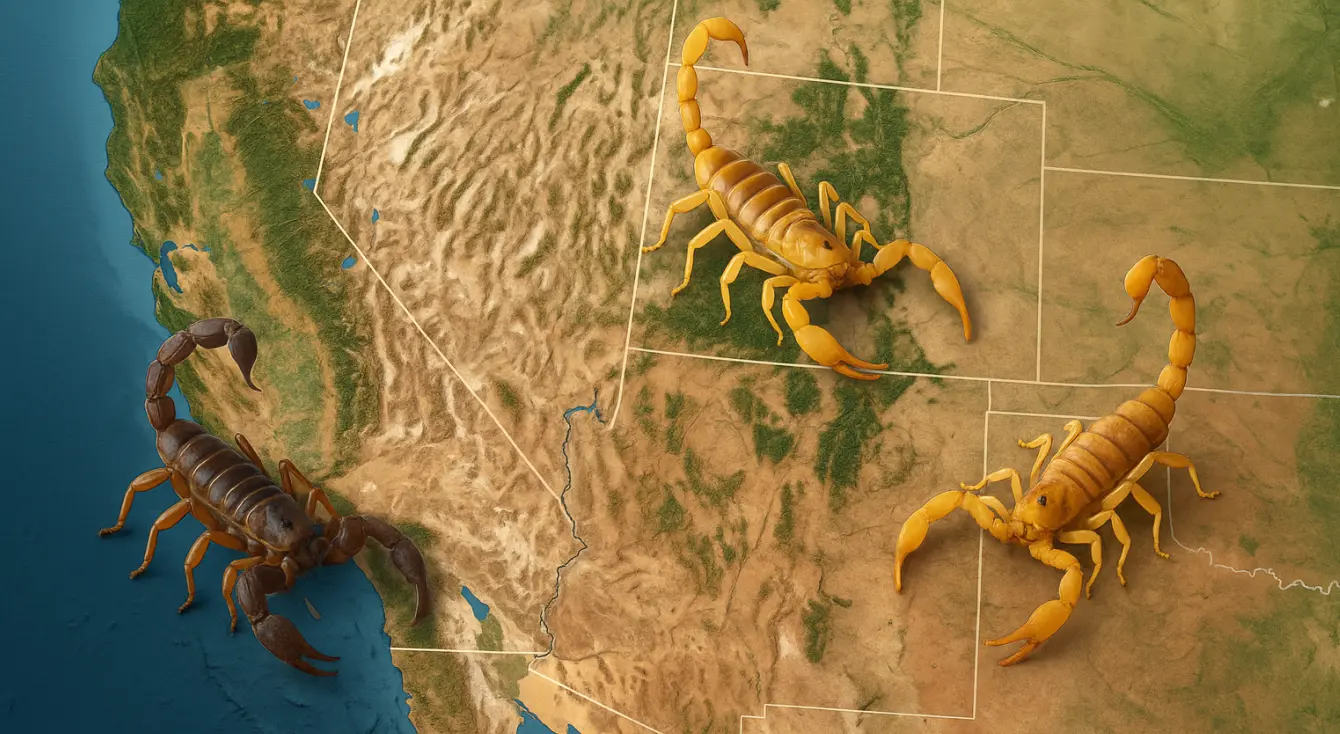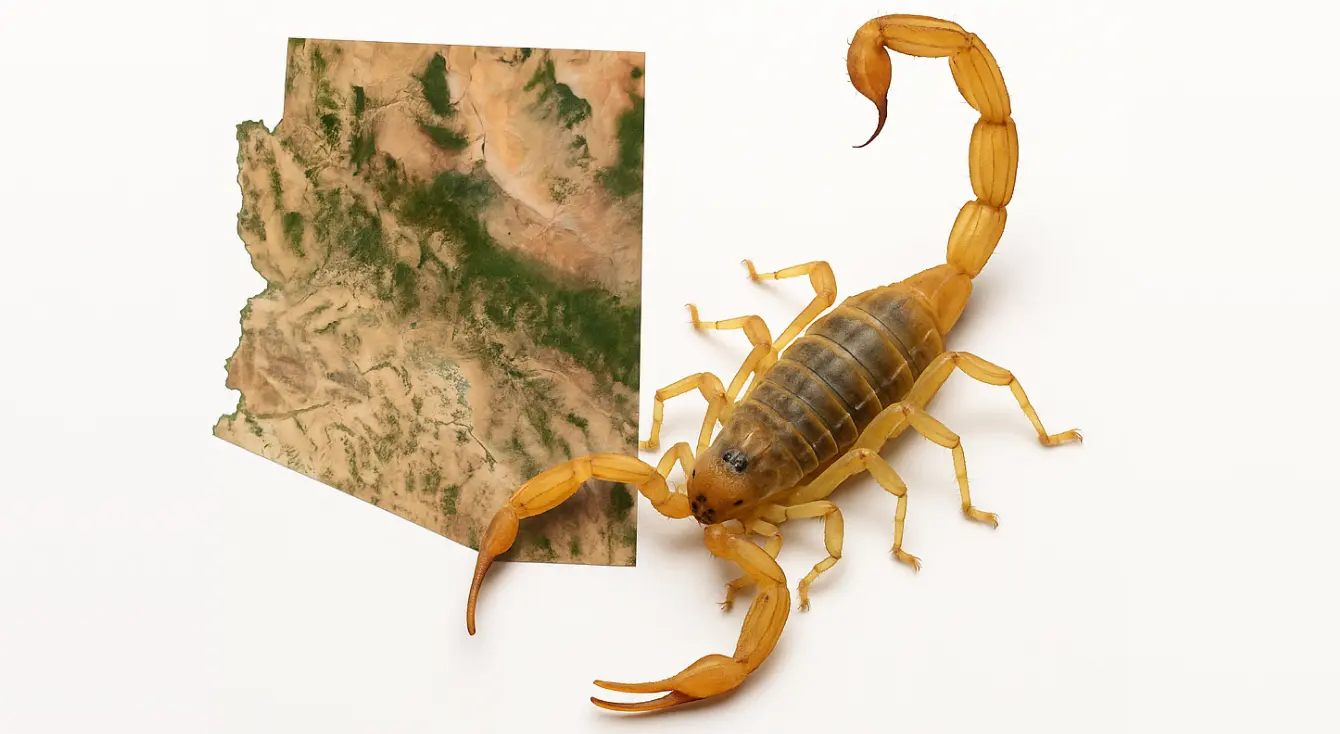Scorpions are a fact of life in the Southwest, but not all scorpions are the same—and neither are their risks. From venom levels to hiding habits, the types of scorpions you’ll encounter vary significantly depending on where you live.
Here’s a breakdown of the most common scorpions across five southwestern states and how they differ:
Arizona
Main species: Arizona Bark Scorpion (Centruroides sculpturatus)
- Most venomous scorpion in North America
- Climbs walls, ceilings, and furniture
- Light tan with a narrow body and thin pincers
- Highly active in Phoenix, Tucson, and surrounding desert towns
Risk: High. Stings can require medical treatment—especially in kids and elderly adults.
Texas
Main species: Striped Bark Scorpion (Centruroides vittatus)
- Most widespread scorpion in Texas
- Tan with two dark stripes down the back
- Climbs well and enters homes through small gaps
Risk: Moderate. Stings are painful but rarely serious unless allergic.
Nevada
Main species: Arizona Bark Scorpion and Stripedtail Scorpion (Paravaejovis spinigerus)
- Southern Nevada has bark scorpions, especially in Las Vegas
- Stripedtail is more common elsewhere and less dangerous
- Often found in attics, under rocks, or near water sources
Risk: Ranges from mild (Stripedtail) to high (Bark Scorpion)
New Mexico
Main species: Striped Bark Scorpion, Lesser Stripetail, Arizona Bark Scorpion (SW corner)
- Bark scorpions near Arizona border
- Stripetails in desert and rocky regions
- Some higher-elevation species in the north
Risk: Mostly low to moderate, but serious stings possible near AZ border
California
Main species: Stripedtail Scorpion, California Common Scorpion, Arizona Bark Scorpion (southeast)
- Southeastern California near Arizona has bark scorpions
- Stripedtail and California common scorpions in desert and foothill regions
Risk: Generally low, except in border areas
No matter where you are in the Southwest, it’s smart to stay vigilant. Whether you’re in a high-risk area like Tucson or a low-risk zone in coastal California, Scorpion Detectors can help you catch activity early—before it becomes a real problem.



.webp)


